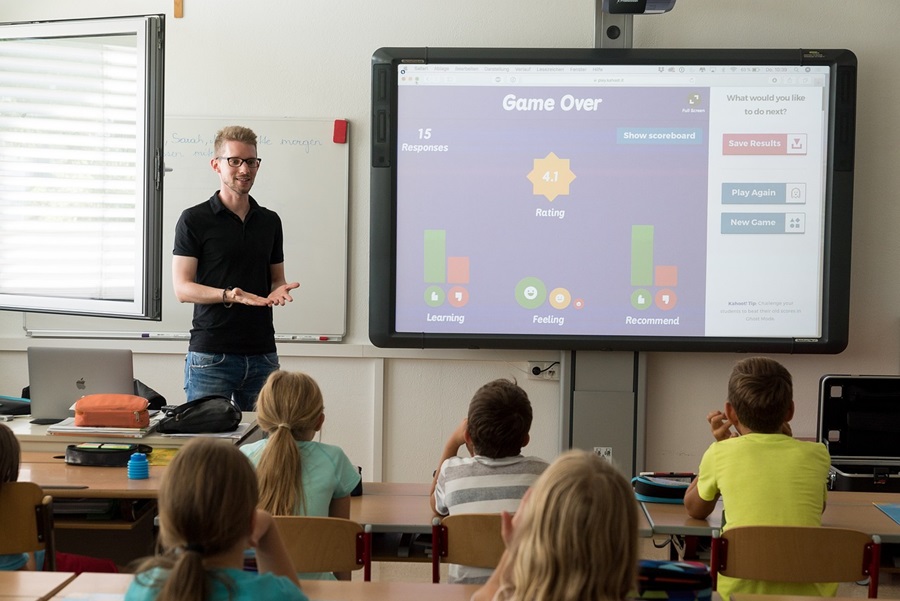- TEACHER TALES
- 13 de November de 2024
- No Comment
- 9 minutes read
More than an indictment of PowerPoint

OUT OF PLACE
More than an indictment of PowerPoint


Javier Rodrigo
I hope I am allowed to begin my first contribution to an educational magazine with a personal reflection on education. This is not something to be taken for granted, as unlike many of the writers here, education is not my primary field of knowledge or training. It is, however, the profession I have pursued (along with related roles in research and academic management) for nearly two decades. The first point—writing in the first person—requires an apology: in recent years, it seems that every opinion column is about the author themselves. We may be living in the era of the supreme and absolute self (though this could be a sweeping generalisation), or perhaps it is merely a justifiable narrative device, or even a way of filling pages to secure payment—a perfectly legitimate goal, of course, though even ChatGPT can do that. However, I must confess that I am uncomfortable with this constant “me, myself and I” approach (as the singer La Mala Rodríguez put it: “otra vez yo, yo, yo, yo, y más yo” (again, it’s me, me, me, and more me”).
Nevertheless, on this occasion—and hopefully for the last time—I believe the use of the first person is justified, as my involvement with this magazine, the foundation that supports it, and the wonderful people who drive it stemmed from an article I wrote for El País. That piece was an SOS, born from my own experiences in the classroom over the past 17 years. I have witnessed the shift from students sitting at their desks surrounded by books during exams to classrooms devoid of books, now filled instead with printed PowerPoint slides and internet notes, or even AI-generated content of appallingly poor quality in terms of both narrative and analysis—frankly, utter rubbish. I always allow students to bring materials to exams (SPOILER: exams are also a form of learning—what is written in that moment tends to stick more firmly than most of what is merely heard, read, or memorised). But in recent years, whether due to my own failings, the pandemic, project-based learning, or something else—of which I honestly have no clear understanding—virtually no one brings books to exams anymore. And it is incredibly difficult to get students to read books, let alone make proper use of them. Not to mention actually enjoying them. Well, that is nothing more than wishful thinking.
The article I wrote was a reflection on the changing strategies of teaching and learning in university classrooms, and how this shift cannot be entirely blamed on the pandemic. The two years of online learning (or rather, a year and a half) merely accelerated and generalised an already growing trend, one that has its roots in bad habits acquired in primary and secondary education, and which remain unresolved in post-16 education before reaching university. This issue relates to reliability and verifiability. Students are not learning to distinguish between a website and an article or book, leading to the erosion of the principle of intellectual authority – not to mention authorship – which is a whole other issue that’s simply heartbreaking. But this is not a nostalgic complaint about the days when we smoked in libraries and watched Truffaut films in the university basement. I have been teaching for 17 years, and I see this problem growing year by year. My article was not simply an indictment of PowerPoint; it was a warning: students are reading less and less because they are not being prepared for it, and because teachers believe that by sharing outlines and notes in PowerPoint slides, they are replacing the autonomous and critical construction of knowledge. It was not an attack on PowerPoint itself, but rather on its misuse. Dumping content onto PowerPoint slides and then sharing them in virtual forums results in classrooms where there is little prior preparation, few notes are taken, and everything is reduced to the all-too-familiar question we teachers are constantly asked: “Will you upload the PowerPoints to the virtual classroom?” I was not discouraging the use of PowerPoint, but trying, within reason, to warn against its misuse. PowerPoint cannot replace a critical bibliography, a source analysis, or a live exercise. I myself use PowerPoint to present maps, graphs, images, and audio. But it is not the only tool of transmission, as much of the teaching staff assumes and many students demand. Like anything else, it should be used wisely, as a tool that complements rather than substitutes debate, complex explanation, or class preparation.
But in reality, and this can be said openly without fear of causing a stir (in fact, with the hope of doing so), my criticism was not directed at PowerPoint per se, but rather at the lazy educator who uses it to fill one or two hours of class with nothing more than a repetition of what is being projected on the screen. It was also aimed at the educational ecosystem that permits and even encourages this, that fails to penalise the lack of rigour, and that relies on precarity and self-indulgence. We should also add another important layer to this explanation: the seed of disaster planted by the misuse of technology flourishes in the fertile ground of the bored, demotivated classroom, overburdened with lessons, abusively confined to spaces where students do not always want to be. These classrooms are often so large that they allow, with few exceptions, only passive engagement in the form of knowledge transmission that we customarily refer to as a lecture. Can meaningful, verifiable debate take place in a room with 80 students? In this classroom ecosystem, PowerPoint emerges as the shortcut, the easy solution. It can even replace the lecturer, the neoliberal academic manager’s dream: upload your lecture slides to the internet and let the students learn on their own. This is, in fact, the pernicious and flawed model of private online “universities” (sigh), which are little more than money-making schemes in exchange for degrees.
Despite what is now said about students constructing their own knowledge, experience shows that effective mediation by the teacher—between knowledge, whether theoretical or practical, and the student—produces better learning outcomes. This mediation does not depend on the tool itself, but on the size of the group, the motivation and rigour of the students, the availability of scholarly resources, the preparation of the teaching staff, and the quality of their selection, training, and evaluation. In short, it depends on resources: intellectual, scientific, and economic, across all levels of the educational community, especially the most vulnerable. As I once discussed with my friend Sergio del Molino, we are not worried about children who grow up surrounded by books and who, if they have talent, will thrive regardless of what secondary education does to them. We are worried about those who live in homes without books, who are at the mercy of the PowerPointification I referred to in my article. These students have been failed by the education system.
This is not an issue that seems to have a quick fix in the short term, at least not in the humanities. But we cannot simply stand idly and lament our fate in bitter gatherings of disgruntled teachers, complaining that students’ levels are lower each year. That is a lie—a convenient and cruel lie against which we must rebel. The failure revealed by the latest PISA results is not the students’ fault; it is the result of the infamous and underfunded (thank you, Artur) educational system imposed upon us in recent years, whose victims are now entering—and leaving—university classrooms. Reversing this trend may well be impossible, but we must demand a high level of rigour to at least mitigate its effects.
___
[Out of Place: title borrowed from Rosendo Mercado. If you’re reading this, thank you, Master.]
Source: educational EVIDENCE
Rights: Creative Commons

